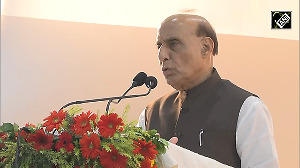Controversial U.S. sprinter Jerome Young has been banned for life after failing a second doping test, the U.S. Anti-Doping Agency (USADA) said on Wednesday.
Young, world 400 metres champion last year, tested positive for the banned endurance booster erythropoietin (EPO) during the Paris Golden League meeting at the Stade de France on July 23, USADA said in a statement.
The sanction for a second doping offence is a lifetime ban, according to International Association of Athletics Federations (IAAF) rules.
The 28-year-old Young, who failed to qualify for the Athens Olympics, had already tested positive for the banned anabolic steroid nandrolone in 1999.
That violation, not announced until last year, sparked an international uproar which led to the IAAF recommending that Young and other members of the triumphant U.S. 4x400 metres relay team lose their gold medal from the 2000 Sydney Olympics.
U.S. and international Olympic officials demanded that USA Track and Field (USATF) turn over documents in Young's case.
USATF, the sport's U.S. governing body, reluctantly agreed to do so in February this year after the U.S. Olympic Committee (USOC) threatened to remove USATF's governing status.
CAS RULING
The Court of Arbitration for Sport (CAS) later ruled that Young should have been banned from the 2000 Games because of his positive test in 1999.
The IAAF has since recommended to the International Olympic Committee (IOC) that all members of the U.S. relay team in Sydney, including five-times Olympic champion Michael Johnson, be stripped of their gold medals.
However, no final decision has yet been announced by the IOC.
Young claims the CAS decision is unfair because a USATF appeals panel had cleared him of the 1999 positive test.
Neither Young nor his legal representatives were available for comment on Wednesday.
USATF spokeswoman Jill Geer said: "There are very clear rules for how doping cases are handled and the appropriate ban has been issued by USADA."
She described as "tragic" any decision by an athlete to cheat.







